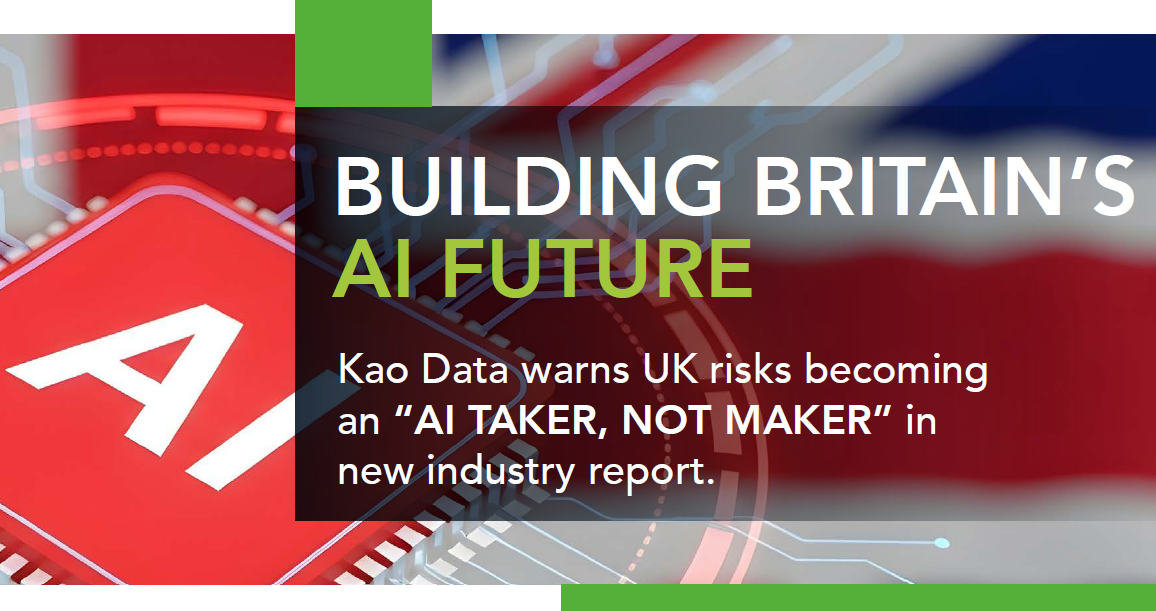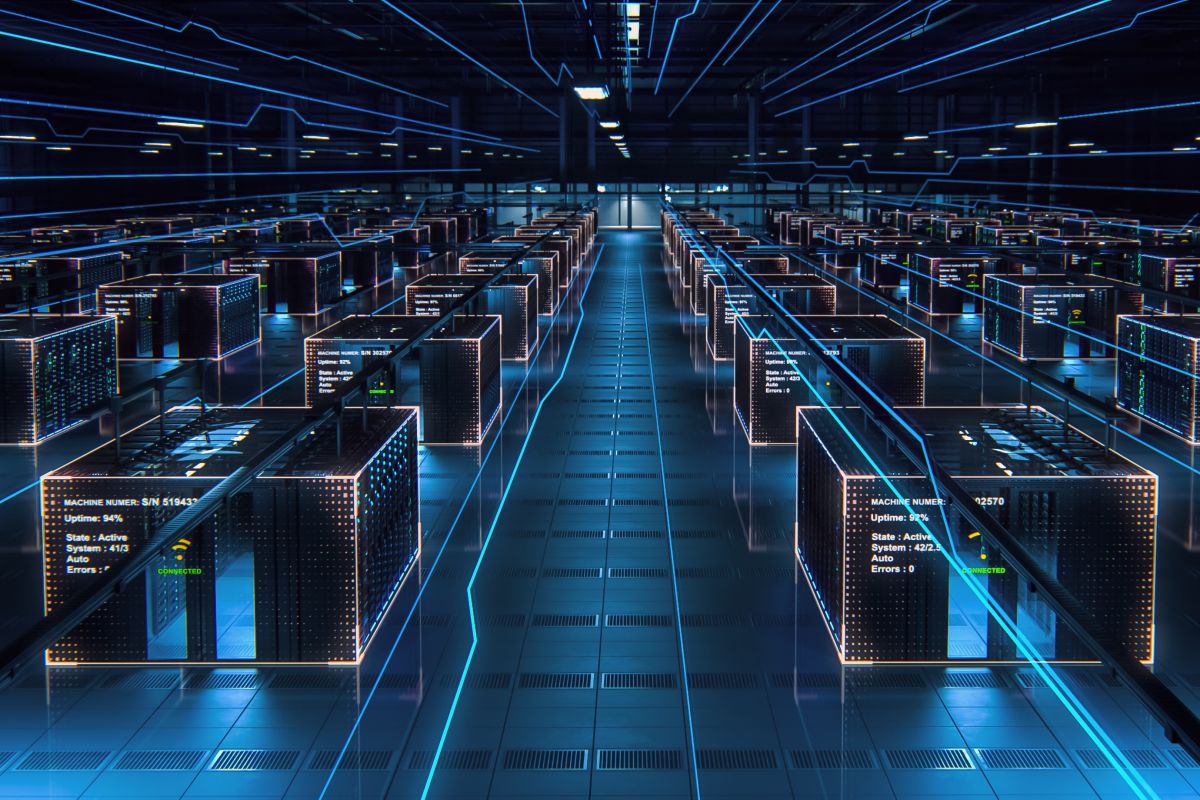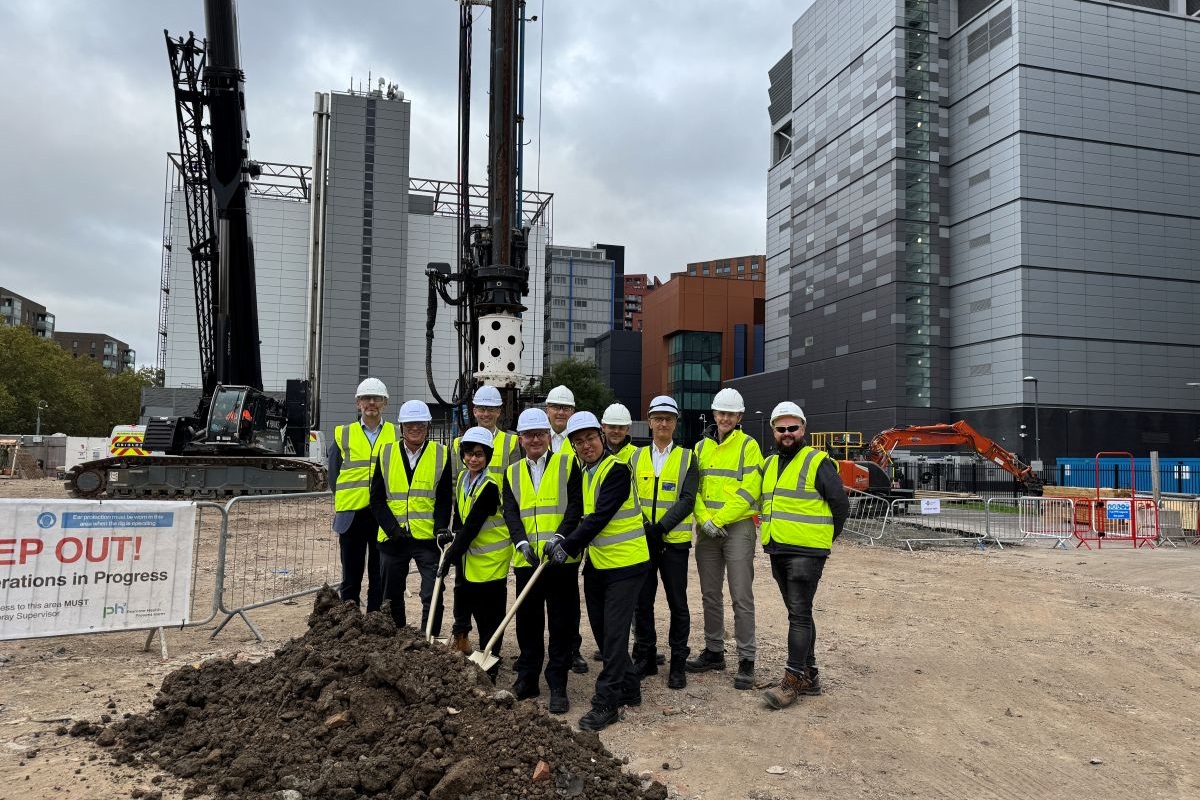Data Centre Build News & Insights
Data Centre Build News & Insights
Data Centre Projects: Infrastructure Builds, Innovations & Updates
Events
Sponsored
Data Centre Congress Global returns in 2026
Data Centre Expo Global is set to return to Olympia London on 4–5 February 2026, bringing together global leaders and innovators from across the digital infrastructure ecosystem to explore the future of green data, intelligent investment, and resilient physical infrastructure.
Driving sustainable growth through innovation and investment
Under this year’s themes of green investment, digital innovation, and physical infrastructure, the programme will spotlight how operators are redefining the foundations of data centres.
Expect deep explorations of decarbonisation strategies, circular and modular design, grid integration, advanced cooling, power systems innovation, and sustainable site planning.
Sessions will also examine how digital innovation is reshaping infrastructure, from AI-driven operations, automation, and control systems to next-generation materials, software-defined infrastructure, and data centre architectures that flex with demand and resilience requirements.
Hyperscale, edge, and ensuring infrastructure resilience
On the day two track, speakers will explore how hyperscale and edge infrastructures must evolve to serve a distributed, latency-sensitive, resilient future.
Topics include data sovereignty, resilient connectivity, distributed compute, AI orchestration, fault tolerance, and hybrid edge-cloud architectures.
The focus will remain squarely on designing systems that sustain performance under evolving stressors and threats.
Hear from leading voices in digital infrastructure
Attendees will gain first-hand insight from distinguished industry leaders, including:
● Elena Rehman, EMEA Head for Data Center Land Development, Microsoft● Kenneth Dalton, Operations Director, Global Switch● Vladimir Prodanovic, Principal Product Manager, NVIDIA● Susanna Kass, Data Center Advisor (UNSDG-EP)● Wilfried Dudink, Senior Director, Strategy & Development, Digital Realty● Joe Hurman, Principal Consultant, STL Partners● Steve Hone, CEO and co-founder, DCA (Data Centre Alliance)● Venessa Moffat, Advisory Board Member, DCA
These experts will share case studies, forecasts, technical deep dives, and actionable guidance to help decision-makers across data centre and infrastructure industries.
A hub for cross-domain collaboration
Co-located with Cyber Security & Cloud Expo, AI & Big Data Expo, IoT Tech Expo, Digital Transformation Week, Cloud Transformation Conference, Edge Computing Expo and the Intelligent Automation Conference, the Expo will offer delegates exposure to the full spectrum of digital infrastructure trends and challenges.
This integrated environment aims to foster "serendipitous connections and cross-industry innovation."
Nearly 8,000 attendees, 150 exhibitors, and over 200 speakers are expected to convene in London to chart the course of next-generation infrastructure. To be a part of it, you can review the full agenda, explore the speaker list, or register for a free or 'Gold' pass by visiting the event's website.
Joe Peck - 24 October 2025
Data Centre Architecture Insights & Best Practices
Data Centre Build News & Insights
Data Centre Security: Protecting Infrastructure from Physical and Cyber Threats
News
Security Risk Management for Data Centre Infrastructure
AWS outage sparks call for resilient DC strategies
This Monday’s Amazon Web Services (AWS) outage demonstrates the importance of investing in resilient data centre strategies, according to maintenance specialists Arfon Engineering.
The worldwide outage saw millions unable to access popular apps and websites - including Alexa, Snapchat, and Reddit - after a Domain Name System (DNS) error took down the major AWS data centre site in Virginia.
With hundreds of platforms down for over eight hours, it was the largest internet disruption since a CrowdStrike update caused a global IT meltdown last year.
The financial impact of the crash is expected to reach into the hundreds of billions, while the potential reputational damage could be even more severe in the long run.
A preventable disaster
Although not caused by a lack of maintenance or physical malfunction of equipment and building services, the consequences of the downtime do reflect an opportunity for operators to adopt predictive maintenance strategies.
Alice Oakes, Service and Support Manager at Arfon, comments, “The chaos brought by Monday’s outage shows the sheer damage that can be caused by something as simple servers going down.
"While it might’ve been unavoidable, this is certainly not the case for downtime caused by equipment failures and reactive maintenance.
“This is where predictive maintenance can make a real difference; it's more resilient, cost-effective, and environmentally responsible than typical reactive or preventative approaches, presenting operators with the chance to stay ahead of potential issues.”
Predictive maintenance strategies incorporate condition-based monitoring (CBM), which uses real-time data to assess equipment health and forecast potential failures well in advance.
This enables informed and proactive maintenance decisions before the point of downtime, eliminating unnecessary interventions and extending asset life in the process.
CBM also reduces the frequency of unnecessary replacements, contributing to lower carbon emissions and reduced energy consumption in a sector under scrutiny for its environmental impact.
Alice continues, “This incident is a timely reminder that resilience should be built into every layer of data centre infrastructure, especially the physical equipment powering them.
"With billions set to be invested in UK data centres over the coming years, operators have a golden opportunity to future-proof their facilities.
“Predictive maintenance should be cornerstone of both new-build and retrofit facilities to adapt to ensure continuity in a sector where downtime simply isn’t an option.”
Joe Peck - 24 October 2025
Artificial Intelligence in Data Centre Operations
Data Centre Build News & Insights
Data Centre Operations: Optimising Infrastructure for Performance and Reliability
Kao Data unveils blueprint to accelerate UK AI ambitions
Kao Data, a specialist developer and operator of data centres engineered for AI and advanced computing, has released a strategic report charting a clear path to accelerate the UK's AI ambitions in support of the UK Government's AI Opportunities Action Plan.
The report, AI Taking, Not Making, delivers practical recommendations to bridge the gap between government and industry - helping organisations to capitalise on the recent £31 billion in commitments from leading US technology firms including Microsoft, Google, NVIDIA, OpenAI, and CoreWeave, and highlighting key pitfalls which could prevent them from materialising.
Drawing on Kao Data's expertise in delivering hyperscale-inspired AI infrastructure, the report identifies three strategic pillars which must be addressed for the UK to secure the much-anticipated economic boost from the Government’s Plan for Change. Key areas include energy pricing and grid modernisation, proposed amendments to the UK’s AI copyright laws, and coordinated investment strategies across the country’s energy and data centre infrastructure systems.
"Matt Clifford's AI Opportunities Action Plan has galvanised the industry around a bold vision for Britain's digital future, and the recent investment pledges from global technology leaders signals tremendous confidence in our potential," says Spencer Lamb, MD & CCO of Kao Data. "What's needed now is focused collaboration between industry and government to transform these commitments into world-class infrastructure. Our new report offers a practical roadmap to make this happen - drawing on our experience developing data centres, engineered for AI and advanced computing, and operating those which already power some of the world's most demanding workloads."
The new Kao Data report outlines concrete opportunities for partnership across a series of strategic pillars, including integrating data centres into Energy Intensive Industry (EII) frameworks, implementing zonal power pricing near renewable energy generation and accelerating grid modernisation to unlock the projected 10GW AI opportunity by 2030.
Additionally, the report proposes new measures to evolve UK AI copyright law with a pragmatic approach that protects creative industries whilst ensuring Britain remains a competitive location for the large-scale AI training deployments essential for attracting frontier AI workloads.
Further, the paper shares key considerations to optimise the government's AI Growth Zones (AIGZs), defining benefit structures that create stronger alignment between public infrastructure programmes and the private sector to ensure rapid deployment of sovereign UK AI capacity.
"Britain possesses extraordinary advantages, world-leading research institutions, exceptional engineering talent, and now substantial investment to back the country’s AI ambitions," Spencer continues. "By working in partnership with government, we believe we can transform these strengths into the physical infrastructure that will power the next generation of industrial-scale AI innovations and deliver solutions that position the UK at the forefront of the global AI race."
To download the full report, click here.
For more from Kao Data, click here.
Simon Rowley - 23 October 2025
Artificial Intelligence in Data Centre Operations
Data Centre Build News & Insights
Data Centre Operations: Optimising Infrastructure for Performance and Reliability
Data Centre Projects: Infrastructure Builds, Innovations & Updates
Start Campus, Nscale to deploy NVIDIA Blackwell in the EU
Start Campus, a designer, builder, and operator of sustainable data centres, in partnership with hyperscaler Nscale, has announced one of the European Union’s first deployments of the NVIDIA GB300 NVL72 platform at its SIN01 data centre in Sines, Portugal.
The project supports Microsoft’s AI infrastructure strategy and marks a milestone in the development of advanced, sovereign AI capacity within the EU.
Nscale, a European-headquartered AI infrastructure company operating globally, selected Start Campus’s site for its strategic location, readiness, and scalability. The first phase of the deployment is scheduled to go live in early 2026 at the SINES Data Campus.
High-density power to support next-generation AI
The NVIDIA GB300 NVL72 platform is designed for high-performance AI inference and training workloads, supporting larger and more complex model development.
Start Campus says the installation will accommodate rack densities exceeding 130 kW, with power and cooling systems engineered to meet the requirements of ultra-dense AI computing.
Portugal’s government has welcomed the investment as a key step in strengthening the country’s position in the European digital economy.
Castro Almeida, Minister of Economy and Territorial Cohesion, comments, “This investment in Sines confirms international confidence in Portugal as a destination for innovation and technology. It strengthens our position in the global digital economy and supports high-value job creation.”
Miguel Pinto Luz, Minister of Infrastructure and Housing, adds, “Start Campus illustrates how digital and infrastructure strategies can align to deliver long-term sustainability.
"Sines demonstrates the convergence of the digital transition with Portugal’s geographic advantages - particularly its port, which plays a strategic role in connecting new submarine cables and enabling low-carbon investment.”
Recent research by Copenhagen Economics projects that data centre investment could contribute up to €26 billion (£22.6 billion) to Portugal’s GDP by 2030, creating tens of thousands of jobs.
Portugal’s location supports strong connectivity through high-capacity subsea cables such as Equiano, 2Africa, and EllaLink, providing low-latency global links.
Data from national grid operator Redes Energéticas Nacionais (REN) shows that renewable energy supplied 71% of Portugal’s electricity consumption in 2024, rising to 81% in early 2025. The country’s energy costs also remain below EU and Euro Area averages.
The next steps
Robert Dunn, CEO of Start Campus, says, “With SIN01 now at full capacity and expanding to meet demand, we have demonstrated that the SINES Data Campus is ready for ultra-dense, next-generation AI workloads.
"Partnering with Nscale and NVIDIA on this deployment highlights Portugal’s role as a leader in sustainable AI infrastructure.”
The company is also progressing work on its next facility, the 180 MW SIN02 data centre, which will form part of the same campus.
Josh Payne, CEO and founder of Nscale, notes, “AI requires an environment that combines scale, resilience, and sustainability. This deployment demonstrates our ability to deliver advanced infrastructure in the European Union while meeting the technical demands of modern workloads.
"Partnering with Start Campus allows us to lay the groundwork for the next generation of AI.”
Nscale is expanding its European footprint, including building the UK’s largest AI supercomputer with Microsoft at its Loughton campus and partnering with Aker ASA on Stargate Norway - a joint venture linked to multi-billion-euro agreements with Microsoft.
For more from Start Campus, click here.
Joe Peck - 23 October 2025
Data Centre Build News & Insights
Data Centre Projects: Infrastructure Builds, Innovations & Updates
Exclusive
Rewiring the data centre
In this exclusive article for DCNN, Will Stewart, Global Senior Industry Segment Manager Lead, Smart Infrastructure and Mobility at HARTING, explores how modularity, power density, and sustainability are converging to redefine how facilities are built, cooled, and scaled:
Building smarter infrastructure for the AI age
Artificial intelligence (AI) has moved from hype to headline, impacting everything from health diagnostics to financial analysis. While the public marvels at AI breakthroughs, the engines powering these advances - the world’s data centres - face growing, behind-the-scenes challenges. As organisations expand their AI capabilities, the energy needed to support modern computing infrastructure is rising at an unprecedented rate.
Current research projects that global data centre power demand will increase by 50% as soon as 2027 and 165% by 2030, with much of this surge attributed to AI workloads’ explosive growth. Already, data centres account for approximately 2% of worldwide electricity consumption and forecasts suggest this share will continue its upward march. The resulting strain extends beyond server rooms; it is currently reshaping energy supply chains, policy priorities, and environmental strategy across industries.
Rising to the infrastructure challenge
Serving next-generation, AI-driven applications requires a dramatic rethink of traditional data centre design. Historically, a data centre’s infrastructure balanced a mix of physical and virtual resources - servers, storage, networking, power distribution units, cooling systems, security protocols, and supporting elements like racks and fire suppression - all engineered for reliability and uptime.
AI’s energy-hungry, compute-intensive tasks have shattered these historical balances. Data centres today must deliver far more power to denser racks, operate reliably under heavier loads, and deploy new capacity at speeds unimaginable even a decade ago. These requirements are putting immense pressure on every inch of physical infrastructure, from the electrical grid connection to the server cabinet.
Navigating power and cooling demands
One of the most acute challenges is arising from escalating power and cooling needs. Where historical rack architecture required 16 or 32A, current designs push 70, 100, or even 200A, often in the same amount of physical rack space. These giant increases not only generate more heat, but require thicker, less flexible power cabling, raising new problems for deployment and ongoing maintenance.
Efficiently removing heat from ever-denser configurations is a major engineering feat. Next-generation cooling technologies - ranging from liquid cooling to full-system immersion - are becoming essential rather than optional. At the same time, every connection point and cable run becomes a potential source of inefficiency or risk. Operators can no longer afford energy loss, heat generation, or even the downtime that results from outdated power distribution or poorly optimised layouts.
The space and scalability constraint
AI workloads are increasingly mission-critical. Even short interruptions in data centre uptime can lead to significant financial loss or damaging outages for users and services. With power loads climbing fast and every square foot optimised, the need for trustworthy, quickly serviceable infrastructure grows more urgent. Reliable system operation is now a defining competitive factor for data centre operators.
To complicate matters further, capacity needs are accelerating, but available space remains finite. In many regions, the cost and scarcity of real estate forces data centres to pack as much compute and power as possible into smaller footprints. As higher-power architectures proliferate, the infrastructure supporting them - from power to networking - must become more compact and adaptable, maintaining robust operation without sacrificing maintainability or safety.
Because new workloads can spike unpredictably, data centre leaders now require infrastructure that can be rapidly scaled up, upgraded, or reconfigured, sometimes within days rather than months. The traditional model of labour-intensive rewiring is proving unsustainable in today’s emerging reality.
Sustainability in the spotlight
Environmental scrutiny from regulators, investors, and end-users places data centres at the heart of the global decarbonisation agenda. Facilities must now integrate renewable energy, maximise electrical efficiency, and minimise overall carbon footprints while delivering more power each year. But achieving these goals demands holistic change from energy procurement and grid strategy down to every connector, cable, and cooling loop inside the facility.
The challenges of the AI era are being met with new ideas at every level of the data centre: smarter building management systems now orchestrate lighting, thermal control, and energy use with unprecedented efficiency; cooling technologies are evolving quickly, as operators push beyond the limits of traditional air-based systems; advanced power distribution and grid connectivity solutions are enabling better load balancing, more reliable energy supply, and easier renewable integration.
Within this broad transformation, the move towards modular, plug-and-play connections - sometimes called connectorisation - is having a dramatic impact. Unlike hardwired installations - which are slow to deploy, often hard to scale and maintain, and require specialised labour that is often unavailable - connectorised infrastructure supports pre-assembled, pre-tested units that can be installed in days rather than weeks and by the workforce that is already available on-site. This not only gets new capacity online faster, but also reduces the opportunity for error, simplifies expansions, and supports higher power throughput within constrained spaces.
Connectors designed for current and future demands minimise heat and energy loss, enhance reliability, and simplify upgrades. Maintenance is easier and faster, with less need for specialised expertise and less operational downtime. These modular technologies are also helping data centres better optimise their architecture, manage complex workloads, and future-proof their operations.
Cooperation and adaptation in a complex landscape
Modernising data centre infrastructure is not simply a technical challenge, but one that requires broad collaboration between technology vendors, utilities, cloud providers, regulators, and policymakers. Federal incentives, innovative funding, and public-private partnerships are all working in support of grid modernisation efforts, while the need for flexibility in design and operation allows data centres to adapt to regional differences in energy supply, regulation, and demand.
While AI has redefined what is possible, it has also redefined what is required behind the scenes. Data centre infrastructure must evolve rapidly - becoming not only larger, but smarter, faster, and greener. Every connection system and square foot now counts in the race to keep up with exponential demand.
For more from HARTING, click here.
Joe Peck - 22 October 2025
Artificial Intelligence in Data Centre Operations
Data Centre Build News & Insights
Data Centre Operations: Optimising Infrastructure for Performance and Reliability
Data Centre Projects: Infrastructure Builds, Innovations & Updates
Exclusive
Rethinking infrastructure for the AI era
In this exclusive article for DCNN, Jon Abbott, Technologies Director, Global Strategic Clients at Vertiv, explains how the challenge for operators is no longer simply maintaining uptime; it’s adapting infrastructure fast enough to meet the unpredictable, high-intensity demands of AI workloads:
Built for backup, ready for what’s next
Artificial intelligence (AI) is changing how facilities are built, powered, cooled and secured. The industry is now facing hard questions about whether existing infrastructure, which has been designed for traditional enterprise or cloud loads, can be successfully upgraded to support the pace and intensity of AI-scale deployments.
Data centres are being pushed to adapt quickly and the pressure is mounting from all sides: from soaring power densities to unplanned retrofits, and from tighter build timelines to demands for grid interactivity and physical resilience. What’s clear is that we’ve entered a phase where infrastructure is no longer just about uptime; instead, it’s about responsiveness, integration, and speed.
The new shape of demand
Today’s AI systems don’t scale in neat, predictable increments; they arrive with sharp step-changes in power draw, heat generation, and equipment footprint. Racks that once averaged under 10kW are being replaced by those consuming 30kW, 40kW, or even 80kW - often in concentrated blocks that push traditional cooling systems to their limits.
This represents a physical problem. Heavier and wider AI-optimised racks require new planning for load distribution, cooling systems design, and containment. Many facilities are discovering that the margins they once relied on - in structural tolerance, space planning, or energy headroom - have already evaporated.
Cooling strategies, in particular, are under renewed scrutiny. While air cooling continues to serve much of the IT estate, the rise of liquid-cooled AI workloads is accelerating. Rear-door heat exchangers and direct-to-chip cooling systems are no longer reserved for experimental deployments; they are being actively specified for near-term use. Most of these systems do not replace air entirely, but work alongside it. The result is a hybrid cooling environment that demands more precise planning, closer system integration, and a shift in maintenance thinking.
Deployment cycles are falling behind
One of the most critical tensions AI introduces is the mismatch between innovation cycles and infrastructure timelines. AI models evolve in months, but data centres are typically built over years. This gap creates mounting pressure on procurement, engineering, and operations teams to find faster, lower-risk deployment models.
As a result, there is increasing demand for prefabricated and modular systems that can be installed quickly, integrated smoothly, and scaled with less disruption. These approaches are not being adopted to reduce cost; they are being adopted to save time and to de-risk complex commissioning across mechanical and electrical systems.
Integrated uninterruptable power supply (UPS) and power distribution units, factory-tested cooling modules, and intelligent control systems are all helping operators compress build timelines while maintaining performance and compliance. Where operators once sought redundancy above all, they are now prioritising responsiveness as well as the ability to flex infrastructure around changing workload patterns.
Security matters more when the stakes rise
AI infrastructure is expensive, energy-intensive, and often tied to commercially sensitive operations. That puts physical security firmly back on the agenda - not only for hyperscale operators, but also for enterprise and colocation facilities managing high-value compute assets.
Modern data centres are now adopting a more layered approach to physical security. It begins with perimeter control, but extends through smart rack-level locking systems, biometric or multi-factor authentication, and role-based access segmentation. For some facilities - especially those serving AI training operations - real-time surveillance and environmental alerting are being integrated directly into operational platforms. The aim is to reduce blind spots between security and infrastructure and to help identify risks before they interrupt service.
The invisible fragility of hybrid environments
One of the emerging risks in AI-scale facilities is the unintended fragility created by multiple overlapping systems. Cooling loops, power chains, telemetry platforms, and asset tracking tools all work in parallel, but without careful integration, they can fail to provide a coherent operational picture.
Hybrid cooling systems may introduce new points of failure that are not always visible to standard monitoring tools. Secondary fluid networks, for instance, must be managed with the same criticality as power infrastructure. If overlooked, they can become weak points in otherwise well-architected environments. Likewise, inconsistent commissioning between systems can lead to drift, incompatibility, and inefficiency.
These challenges are prompting many operators to invest in more integrated control platforms that span thermal, electrical, and digital infrastructure. The goal is now to have the ability to see issues and to act quickly - to re-balance loads, adapt cooling, or respond to anomalies in real time.
Power systems are evolving too
As compute densities rise, so too does energy consumption. Operators are looking at how backup systems can do more than sit idle: UPS fleets are being turned into grid-support assets. Demand response and peak shaving programmes are becoming part of energy strategy. Many data centres are now exploring microgrid models that incorporate renewables, fuel cells, or energy storage to offset demand and reduce reliance on volatile grid supply.
What all of this reflects is a shift in mindset. Infrastructure is no longer a fixed investment; it is a dynamic capability - one that must scale, flex, and adapt in real time. Operators who understand this are the best placed to succeed in a fast-moving environment.
From resilience to responsiveness
The old model of data centre resilience was built around failover and redundancy. Today, resilience also means responsiveness: the ability to handle unexpected load spikes, adjust cooling to new workloads, maintain uptime under tighter energy constraints, and secure physical systems across more fluid operating environments.
This shift is already reshaping how data centres are specified, how vendors are selected, and how operators evaluate return on infrastructure investment. What once might have been designed in isolated disciplines - cooling, power, controls, access - is now being engineered as part of a joined-up, system-level operational architecture. Intelligent data centres are not defined by their scale, but by their ability to stay ahead of what’s coming next.
For more from Vertiv, click here.
Joe Peck - 21 October 2025
Data Centre Build News & Insights
Data Centre Projects: Infrastructure Builds, Innovations & Updates
Telehouse breaks ground on new London data centre
Telehouse International Corporation of Europe, a global data centre service provider and subsidiary of telecommunications company KDDI Corporation, has today broken ground on the new Telehouse West Two data centre at its existing London Docklands campus - which Telehouse says is the most connected data centre campus in Europe.
The £275m investment in the new data centre is set for completion in 2028. Flynn Management & Contracting, an international construction and fit-out company, will work with Jones Engineering Group, specialists in mechanical, electrical, and fire protection, to deliver the project.
Strategically located close to London’s financial district, the new facility will be purpose-built to support the rapid adoption of emerging technologies such as AI. The new facility will integrate both air and liquid cooling technologies to meet growing demand for high density compute environments, allowing customers to scale without compromise. Telehouse West Two will offer two meet-me rooms and four dedicated secure connectivity risers.
Designed with sustainability, resiliency, and security at its core, Telehouse West Two will offer uptime guarantees of 99.999% to ensure uninterrupted operations for customers. The data centre has been designed to BREEAM Excellent standards, indicating a high level of environmental performance against a widely recognised sustainability assessment for buildings. 100% renewable energy will power its operations. The new facility will deliver exceptional efficiency with very low WUE and PUE, while also supporting sustainability objectives with heat recovery potential and HVO-fuelled backup generators.
The new data centre represents a significant step in Telehouse’s long-term strategy to expand its presence in London, where it has maintained a presence for more than 35 years. This latest development in London strengthens Telehouse’s global growth trajectory, meeting the rising demand for advanced digital infrastructure and empowering enterprises to accelerate their digital transformation.
Kenkichi Honda, Managing Director at Telehouse Europe, says, “The new Telehouse West Two site marks another important step in our ongoing mission to deliver world-class, sustainable digital infrastructure. This expansion will empower digital transformation for enterprise clients across multiple sectors, enabling them to benefit from emerging technologies which are shaping the future world, while supporting the uncompromising need for energy efficiency and carbon neutrality.”
The nine-storey building will cover a total gross area of 32,000m², including 11,292m² of white space across six levels, on floor customer storage and plant areas. With flexibility central to the design, the layout will incorporate associated switchgear, UPS systems, chilled water cooling, and a floor-by-floor ventilation plant to support a wide range of customer requirements. The site will also be powered by two new 132kV substations which will provide 11kV across the wider campus, enabling an overall building capacity of 33MW.
Each floor will be capable of delivering up to 4.4 megawatts (MW) of power capacity ensuring the resilience and scalability required for future growth. To ensure the highest levels of protection, the facility will be equipped with multi-layered physical security and advanced threat detection, including 24/7 surveillance, on-site security personnel, and real-time incident response protocols.
Kevin Flynn, CEO of Flynn Management & Contracting, comments, “We’re proud to have once again been appointed by Telehouse for a new building project. Our team is ready to deliver on the company’s vision for a data centre that meets the ever-growing digital needs of companies, and it’s a great opportunity for us to further enhance our presence in the capital’s data centre market.”
Brendan McAtamney, Group Director, Jones Engineering Group, adds, “We’re delighted to work with Flynn Management & Contracting on the engineering and installation of services to Telehouse West Two. This is a fantastic opportunity for us to work on a major data centre project in the heart of London, and we’re looking forward to getting started.”
For more from Telehouse, click here.
Simon Rowley - 20 October 2025
Data Centre Build News & Insights
Data Centre Projects: Infrastructure Builds, Innovations & Updates
Exclusive
Security Risk Management for Data Centre Infrastructure
Pressing challenges impacting the future of US data centres
In this exclusive article for DCNN, Matt Coffel, Chief Commercial and Innovation Officer at Mission Critical Group (MCG), explores how growth in the US data centre market is being affected by increasing challenges, demanding new levels of collaboration and innovation across the sector:
An increasingly omnipresent industry
Data centres and related facilities are everywhere today. Synergy Research Group states hyperscalers account for 44% of those facilities worldwide, while non-hyperscale colocation and on-premise account for 22% and 34% respectively. They also project that by 2030, hyperscalers will account for 61% of all data centres and related facilities.
While there are no definitive estimates on how many of these facilities will be constructed in the US in the coming years, planning and development in the country are happening faster than ever before. Take, for example, the recent developments in Pennsylvania regarding investment in data centres and other technology infrastructure to support AI, including significant investments from Amazon and CoreWeave.
With AI adoption surging and data generation accelerating in sectors like healthcare, financial services, and the federal government, the number of data centres is only set to grow. But as demand rises, so too do the obstacles. Data centre operators and their partners face mounting challenges that threaten timelines, drive up costs, and complicate efforts to scale efficiently - and there are no easy fixes.
Persistent and critical challenges
When it comes to the construction of a data centre, there are many factors to consider. However, four factors have emerged as critical challenges for data centre operators and their partners: permitting, power, skilled talent, and compute.
1. Regulation: Securing permits to build and operate
Even as demand for compute and power accelerates, operators are forced to navigate lengthy and often inconsistent approval processes. In some jurisdictions, permitting can take two to three years before projects can even break ground. These delays put US developers at a disadvantage compared to countries with more streamlined regulatory systems.
The challenge is compounded by the sheer scale of today’s facilities. Projects promising multiple gigawatts of capacity require not only land and power, but also regulatory sign-off on issues such as environmental impact, emissions, and noise. These reviews often involve multiple parties - utilities, consultants, environmental specialists, and local governments - which makes coordination slow and uncertain. Moreover, the difficulty varies widely by location. In cities like Austin in Texas, approvals can be tough to secure, while just miles outside the city limits, the process may move much faster.
2. Time to power
According to the International Energy Agency’s (IEA) Energy and AI report, “Power consumption by data centres is on course to account for almost half of the growth in electricity demand between now and 2030 in the US.”
This rising demand is evident in Northern Virginia, where a large cluster of data centres has been built over the past twenty years. With this cluster of data centres in a single area, along with the demands from AI and data processing loads, power substations have reached maximum capacity. This has forced utility providers and data centre operators to either bring in new lines from distant locations - where there is excess power, but transmission infrastructure is lacking - or to build new data centres in rural areas so they can access untapped power.
Yet, building new transmission lines from other locations or setting up data centres can take years and doesn’t address the current power demand.
3. Access to skilled talent to support current and future projects
Data centre operators and their partners are working to build new facilities across the US, often in remote parts such as Western Texas, where they can access untapped power sources. Building in these areas introduces several challenges related to skilled labour.
Building and maintaining a data centre requires highly skilled electricians, mechanics, and controls specialists who can handle complex electrical and mechanical systems and often on-site power generation. However, the US faces a nationwide shortage of these workers. The US Bureau of Labor Statistics forecasts that employment for electrical workers will grow by 11% from 2023 to 2033 - a much faster rate than the average for all jobs. Still, many electricians are nearing retirement and set to leave the field in the coming years. This is likely to create a gap that operators will find difficult to fill as they work to build and keep their facilities running.
Additionally, data centre operators and their partners face the reality that many skilled workers are unwilling to live far from population centres.
Recent estimates from Goldman Sachs Research underscore the scale of this challenge. It projects that the US will require 207,000 more transmission and interconnection workers and 300,000 extra jobs in power technologies, manufacturing, construction, and operations to support the additional power consumption needs projected for the US by 2030.
This dual challenge of labour scarcity and logistical complexity is making traditional, on-site construction methods increasingly untenable. As a result, the industry is pivoting towards prefabricated, modular power solutions that are engineered and assembled in a controlled factory environment. This approach mitigates the impact of localised labour shortages by capitalising on a centralised, highly skilled workforce and deploying nearly complete, pre-tested power modules to the remote data centre location for rapid and simplified final installation.
4. The accelerating pace of change in compute technology
The speed at which compute technology is evolving has reached an unprecedented level, putting enormous pressure on data centre operators and their partners.
Moore’s Law is no longer the standard; today’s compute configurations are far more advanced than ever before, with denser platforms being released every 12 to 18 months. This rapid cycle forces operators to rethink how they design and future-proof facilities - leveraging concepts such as modularisation - as infrastructure built just a few years ago can quickly fall behind.
The need for collaboration
Each of these challenges is significant on its own, but together they mark one of the most complex periods in the history of infrastructure development. To move forward, data centre operators, utilities, manufacturers, technology providers, and government agencies must work closely to identify solutions and provide support for each obstacle.
On the skilled labour front, companies outside the manufacturing space are also contributing. Earlier this year, Google pledged support to train 100,000 electrical workers and 30,000 new apprentices in the US. This funding was awarded to the electrical training ALLIANCE (etA), the largest apprenticeship and training program of its kind, founded by the International Brotherhood of Electrical Workers and NECA.
State leaders are playing a role as well. In Pennsylvania this summer, for example, the governor and other legislators have demonstrated strong support for data centre growth.
MCG, a manufacturer and integrator of power and electrical systems, is one example of how industry players are stepping up. MCG designs, manufactures, delivers, and services systems tailored for data centre operators and other mission critical environments.
In collaboration with operators and other equipment and technology providers, MCG produces modular power systems that are built off-site to ease workforce constraints. These systems are then delivered directly to data centres or their power facilities, where the MCG team commissions and maintains them.
With efforts from government officials, companies like MCG and Google, and other stakeholders, the US data centre industry can continue powering the digital future - no matter how much demand for power and compute increases.
For more from Mission Critical Group, click here.
Joe Peck - 17 October 2025
Data Centre Build News & Insights
Data Centre Business News and Industry Trends
Data Centre Compliance: Standards, Risk & Governance
Data Centre Projects: Infrastructure Builds, Innovations & Updates
London's data centres could heat 500,000 homes
According to a new report from global infrastructure company AECOM, London’s data centres are releasing enough waste heat to warm up to half a million homes each year, yet much of this potential energy is being lost to the atmosphere.
Commissioned by the Greater London Authority (GLA) and conducted in partnership with asset management and commercial consultants HermeticaBlack, the study reveals that up to 1.6 terawatt-hours of heat could be recovered each year from the capital’s data centre estate - equivalent to meeting all the heating and hot water needs for all homes in Ealing.
The report - Optimising Data Centres in London: Heat Reuse - identifies opportunities to adjust planning and infrastructure policy to unlock this potential for London and sets out recommendations including updated planning guidance, targeted infrastructure incentives, and a standardised framework for activating heat offtake from data centre operators.
This includes making sure the designs for all future data centres optimise the ability to re-use waste heat.
The potential of heat recovery
The uptake of heat recovery in London is currently limited, but AECOM’s report identified cities around the world, including Geneva, that are utilising as much as 95% of the heat recovered from a data centre.
The infrastructure consultant says that UK cities, including London, have an opportunity to heat new homes with clean, affordable energy. The report estimates, based on the quantum of heat being currently lost, there is the potential to heat up to half a million homes.
When this model was tested across London’s data centre dataset, it evidenced the network could provide enough heat to supply around 350,000 homes.
With more than one in eight London households in fuel poverty, and the UK still heavily reliant on gas boilers for home heating, the report highlights the social as well as environmental case for change.
Data centres - often located in densely populated parts of East and West London - offer a local, low-carbon source of heat for nearby homes, schools, and public buildings.
The added value of data centres
Data centres are critical to catering for the increasing demand for AI and high-performance computing. The computing power required generates higher server temperatures, creating higher-grade waste heat more viable for reuse.
Asad Kwaja, Associate Director, Sustainability & Decarbonisation Advisory at AECOM, says, “The UK needs complex digital infrastructure to enable its ambitions to become a leader in AI.
"Data centres lie at the heart of this conversation, but we must consider their wider use if they are going to play an integral part of the UK’s infrastructure landscape. Data centres should no longer be considered as just an energy consumer; they can become a part of the whole energy ecosystem.
“London is one of the biggest data centre hubs across Europe, the Middle East, and Africa, and hosts 80% of the UK’s capacity. With the right planning, coordination, and investment, London’s data centres could play a pivotal role in decarbonising the heat needed to power the influx of new homes the capital needs to build to address the housing crisis, while also cutting bills for existing residents and improving local energy resilience.”
A scheme to capture the waste heat from data centres is already underway in North West London.
In 2023, the Old Oak and Park Royal Development Corporation (OPDC) secured £36 million in funding from the government to deliver a heat network, developed by AECOM, to serve 95 gigawatt-hours annually, recovering heat from up to three data centres.
Joe Peck - 15 October 2025
Data Centre Build News & Insights
Data Centre Business News and Industry Trends
Data Centre Projects: Infrastructure Builds, Innovations & Updates
Insights into Data Centre Investment & Market Growth
Planera secures $8m to support data centre expansion
Planera, a US provider of construction scheduling and planning software, has announced an additional $8 million (£6 million) in funding to expand its work within the data centre construction sector.
The company, which develops collaborative scheduling software for construction projects, says the funding will support wider adoption among contractors and subcontractors involved in complex data centre builds.
The latest investment follows the company’s 2024 Series A round and brings total funding to $26.5 million (£19.9 million).
According to Planera, the new capital will be used to enhance its platform and deepen engagement with data centre clients.
Supporting large-scale construction projects
Planera says it has developed tailored services for data centre contractors, supported by a dedicated team with experience in mission-critical construction.
The company has also introduced new AI tools designed to identify potential schedule risks earlier and improve project delivery timelines.
Current customers include:
• HITT Contracting, which uses Planera to improve visibility on data centre project progress and accelerate delivery.
• Ralph L. Wadsworth (RLW), which employs Planera to coordinate complex builds for major technology clients, helping to improve collaboration and reduce schedule compression.
• Ryan Companies US, which uses the platform for collaborative scheduling, subcontractor resource analysis, and integration with master schedules.
Industry research highlights the scale of the sector’s growth, as Grand View Research estimates the global data centre market at around $347.6 billion (£261.7 billion) in 2024, rising to $652 billion (£490.9 billion) by 2030.
Arizton reports that data centre construction will grow from $91.9 billion (£69.1 billion) in 2024 to more than $214 billion (£161.1 billion) by 2030, driven by investment in hyperscale and AI infrastructure.
Nitin Bhandari, CEO of Planera, comments, “With data centre demand increasing worldwide, our customers need modern, collaborative scheduling tools that can match the scale and complexity of these projects.
"This new funding will help us focus further on mission-critical work while continuing to support customers across other segments.”
The funding round includes participation from Sorenson Capital, Sierra Ventures, Prudence, Brick and Mortar Ventures, Zachry Construction Corporation, and other industry investors.
Ken Elefant, Managing Director of Sorenson Capital, suggests, “The adoption of AI is driving intense demand for new data centre capacity. Delays on large-scale projects can have significant financial implications and Planera is well positioned to help contractors deliver on time.”
Ranjeet Gadhoke, Vice President of Project Controls at Zachry Construction Corporation, adds, “We use Planera across all our projects and have seen the value it brings to planning and scheduling. This investment reflects our confidence in the platform and its contribution to greater efficiency.”
Todd Von Krosigk, Senior Superintendent at HITT Contracting, concludes, “To meet growing data centre demand, we require modern scheduling technology that can keep pace. Planera has become a key partner, giving our teams improved visibility and control.”
Joe Peck - 14 October 2025

Head office & Accounts:
Suite 14, 6-8 Revenge Road, Lordswood
Kent ME5 8UD
T: +44 (0)1634 673163
F: +44 (0)1634 673173









